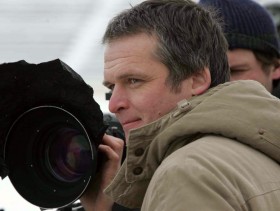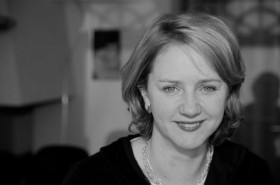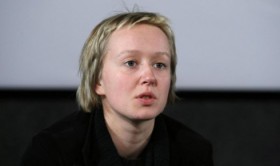


Baltic Responses to Ban of Russian Channels
Is this a wise decision, I wondered, when i read a text on “Film New Europe” a couple of weeks ago:
Governmental bodies in both Latvia and Lithuania have banned broadcasts of Russian state TV channels. A three month ban began on 8 April 2014. Lithuania first issued a three month ban of the Russian channel NTV Mir two weeks earlier over broadcast of the documentary The Convicted. It later suspended broadcasts of RTR-Planeta (Russia) also for a period of three months. Latvia issued a three-month suspension of rebroadcasts of the channel Rossiya RTR over reports of biased coverage reflecting military propaganda. One-third of Latvia’s population is native Russian-speaking, and 8 percent of Lithuania’s population is comprised of native Russian language speakers…
I decided to ask three very good friends to give me their reactions, Latvian Lelda Ozola who works as Media Desk at the National Film centre, film directors Giedre Beinoriūtė and Audrius Stonys from Lithuania. The answers, the strongest one first, were:
STONYS: Let me answer you what I think about the banning of Russian TV channels in few questions. Would it be possible that ‘Der Stűrmer’ or ‘Vőlkischer Beobachter’ would be published and distributed in London in
1941? Would any European country accept a TV channel which would openly propagate war, violence and national or racial discrimination? What is the difference between Putin and Goebbels propaganda?
The war against Ukraine already started. Also in the information front. The banning of these Russian state TV channels has nothing to do with rights of Russian population in Latvia and Lithuania. Actually a majority of Lithuanian Russians are not supporting war against Ukraine. Lie is a lie and it has nothing to do with a freedom of speech. I follow events in Ukraine and how they are presented in Russian TV channels on the internet. It is mind blowing open and extremely cynical lie. We banned this open lie in our countries, but I think this issue should be taken very seriously in the European context. In XXI century in Europe, a Television is used as a repressive weapon against freedom of another country. How could this be possible?

Audrius Stonys
OZOLA: The things happening in the Ukraine is not fun. Somehow we here take it very personally – the fear is almost physical. Russia is so close and performs so cynically in the Ukraine. We have witnessed provocations here from the Russian speaking population and the state TV channels of Russia broadcast sheer propaganda and lies – they incite hatred on regular basis. So, actually, the ban on the channels is a measure of defence. The pretext for Russia to come and defend their citizens who suffer here seems very close to reality at the moment. That’s why the channels are banned even though it is most probably difficult for you to understand it looking from the media democracy point of view…

Lelda Ozola
BEINORIUTE: I think it is not about just banning the Russian TV channel. Russia is using media as a weapon constantly and deliberately spreading lies and disinformation and inciting hatred. Russia is waging the information war. So I see this ban not as a sanction but as a defence. And I think this ban is the least reaction which should be reacted to. Somebody has just to say: stop. And I wish Europe would be less faltering.

Giedré Beinoriute